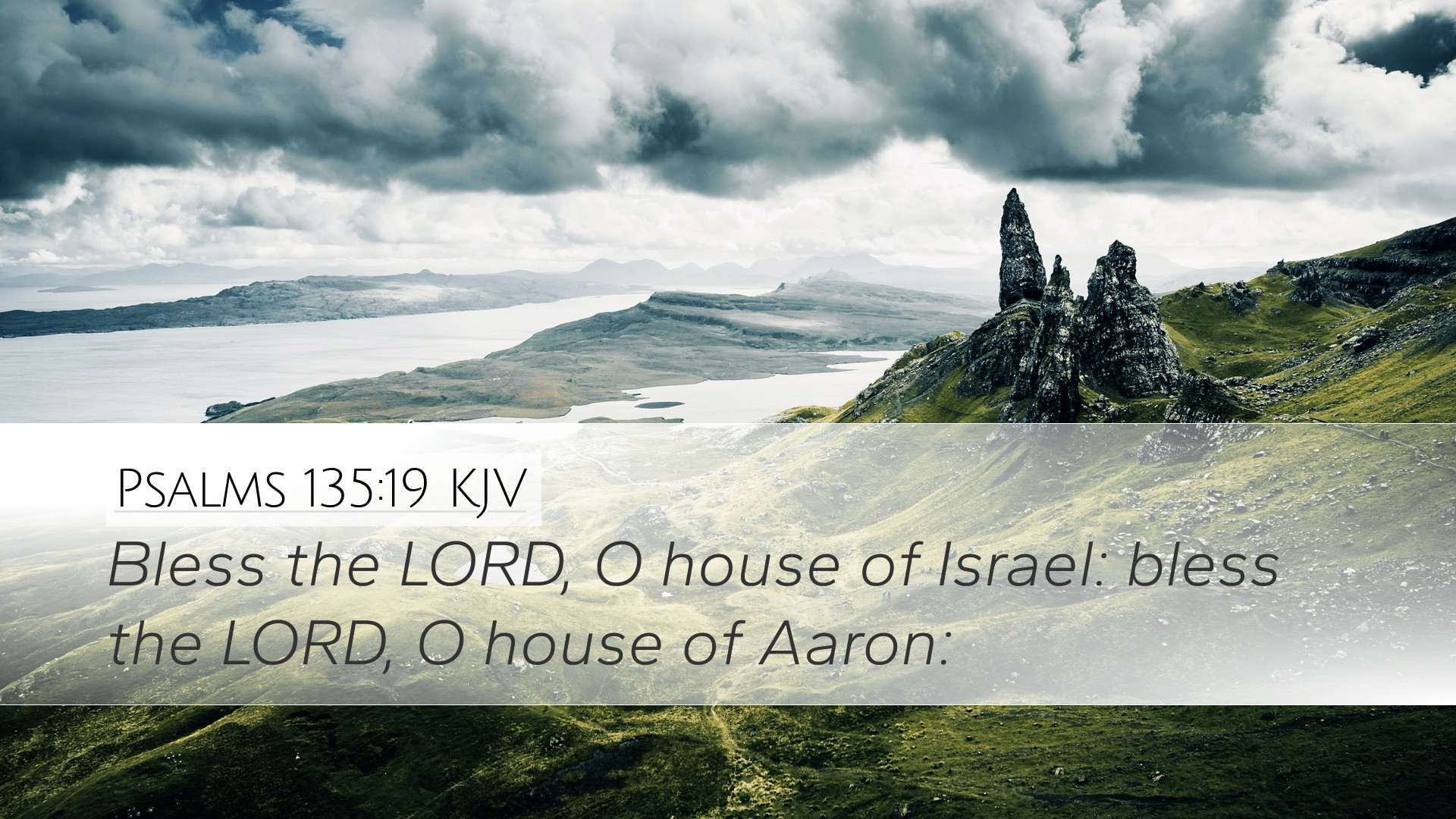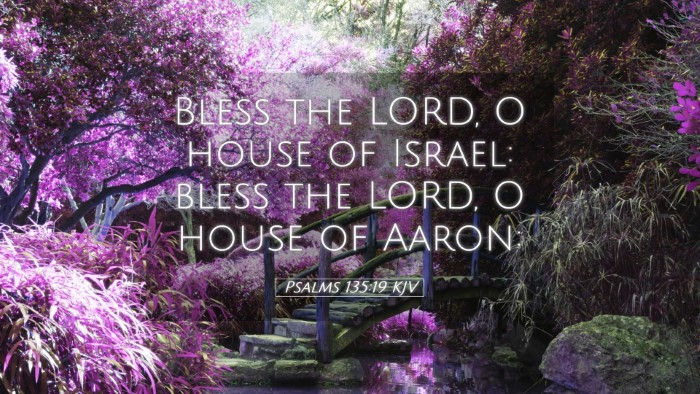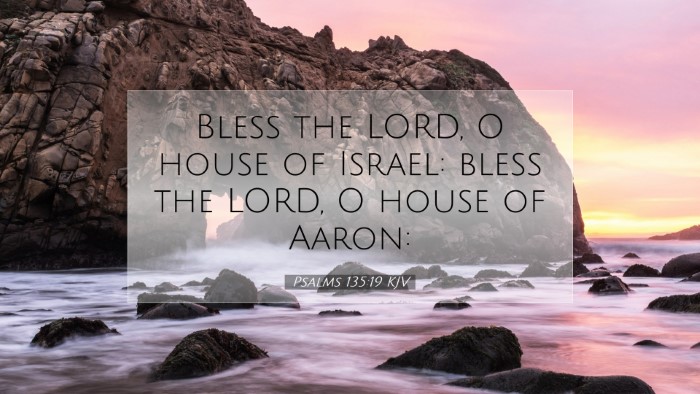Psalms 135:19 Commentary
Verse: "O house of Israel, bless the LORD; O house of Aaron, bless the LORD; O house of Levi, bless the LORD; ye that fear the LORD, bless the LORD."
Introduction
This verse is a part of a larger psalm that emphasizes the greatness and sovereignty of God. It calls upon different groups within Israel to bless the LORD, highlighting the communal aspect of worship and the acknowledgment of God’s everlasting mercy. Below, we examine the insights offered by renowned public domain commentaries to elucidate the meaning of this verse.
Insights from Matthew Henry
Matthew Henry notes that this verse is a call to action for the people of Israel to actively engage in worship. He emphasizes the repetitive nature of the command to "bless the LORD," which underlines both its importance and the need for all groups, including the entire nation and its leaders (the house of Aaron and the house of Levi), to participate in this act of reverence.
Henry further explains that the distinction between the houses of Israel, Aaron, and Levi signifies the various roles within God’s covenant community, suggesting that each group has a unique relationship with God that does not exempt them from responsibility in worshiping Him. The phrase "ye that fear the LORD" expands the call beyond the boundaries of ethnic or official categories, inviting all who recognize God’s authority and worship Him in spirit and truth to join in blessing the LORD.
Insights from Albert Barnes
Albert Barnes elaborates on the theological implications of the exhortation found in this verse. He points out that to "bless the LORD" signifies an acknowledgment of His attributes and works, leading the faithful to express gratitude and praise. By calling on each house—Israel, Aaron, Levi—Barnes underscores the inclusivity of worship, highlighting that no one is to be excluded from the celebration of God’s majesty and mercy.
Moreover, he observes that the structure of this verse functions as a literary device meant to unify the worshippers. Each group—whether a leader or a follower—has a part to play in the corporate identity of worship which reflects their gratitude and acknowledgment of God’s providence. Such collective worship manifests the strength of the community’s faith and commitment to honor God collectively.
Insights from Adam Clarke
Adam Clarke provides a historical context for this passage, noting the importance of the temple and the role of the Levites and priests in Israelite worship. He emphasizes that "blessing" here represents an act of public acknowledgment of God’s supremacy and the gratitude of the people towards Him.
Clarke also introduces the idea that such exhortations to bless God are not merely functional but integrative, creating a sense of unity among the people. In this call to worship, there is a reflection of the covenant relationship, where God’s faithfulness is mirrored in the people’s devotion. He connects this verse to the broader theme of communal worship as an essential aspect of Israel’s identity as God’s chosen people.
Theological Reflections
This verse resonates with a profound theological affirmation of worship as a communal journey. In its call to various groups to bless the LORD, we find a microcosm of the church. Just as Israel was called to worship, so too are all believers invited into a communal dynamic of glorifying God.
The distinction among the houses reminds us of the varied roles within the body of Christ, particularly in the New Testament context where every believer is part of the body, contributing through their own gifts to the praise and worship of God. This reflects a deep sense of community and mutual responsibility in the act of worship.
Application for Today
In today's context, this verse serves as a reminder to church leaders and congregants alike about the importance of corporate worship. Pastors and theologians can reflect on what it means to foster an environment where every member feels invited to contribute to the worship experience. The call to bless the LORD is relevant, prompting every believer to actively engage in worship through various expressions, whether in song, prayer, or acts of service.
Additionally, the verse challenges us to consider our roles within the church community. Are we fulfilling our part in blessing the LORD alongside our brothers and sisters? The acknowledgment of God’s majesty should inspire a collective response from His people, encouraging unity and devotion that transcends individual preferences or backgrounds.
Conclusion
Psalms 135:19 calls upon the collective voices of Israel, echoing through time to challenge us today. It inspires a familial bond as we worship the same God together. The insights from Matthew Henry, Albert Barnes, and Adam Clarke bring to light not only the theological depth of this verse but also its practical implications for our lives as followers of Christ. Let us join in the chorus of praise, recognizing God’s greatness and extending that invitation to all who fear the LORD, cherishing our part in His marvelous creation and community.


